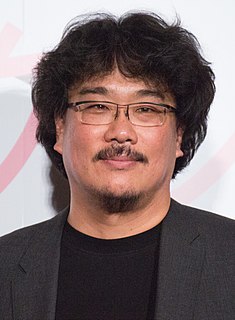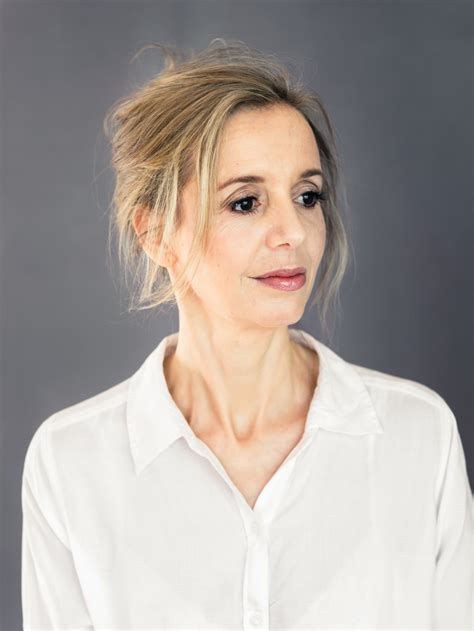A Quote by Bong Joon-ho
The mother's love for her child is very strong in Korean society - almost on the borderline of being an obsession.
Quote Topics
Related Quotes
A mother's love is everything, Jared. It is what brings a child into this world. It is what molds their entire being. When a mother sees her child in danger, she is literally capable of anything. Mother have lifted cars off of their children, and destroyed entire dynasties. A mother's love is the strongest energy known to man. You must that love, and it's power.
The biographies of the great men see their excesses as signs of their greatness. But Jean Rhys, in her biography, is read as borderline; Anaïs Nin is borderline; Djuna is borderline; etc. etc. Borderline personality disorder being an overwhelmingly gendered diagnosis. I write in Heroines: “The charges of borderline personality disorder are the same charges against girls writing literature, I realize - too emotional, too impulsive, no boundaries."
Tereza's mother never stopped reminding her that being a mother meant sacrificing everything. Her words had the ring of truth, backed as they were by the experience of a woman who had lost everything because of her child. Tereza would listen and believe that being a mother was the highest value in life and that being a mother was a great sacrifice. If a mother was Sacrifice personified, then a daughter was Guilt, with no possibility of redress.
Growing up, my mother was a very strong woman who was not very big, about 5'1'', but boy, you grabbed a tiger by the tail if you messed with her. I know grown men that messed with her, and through her wit and intelligence and her no-quit, she never lost a fight. That's very influential on me when I'm telling stories. I love exploring that.
I'll show up at every classroom open house and teacher conference,' she said, now in a voice that was almost frightening in its intensity. 'I'll bake brownies. My child will have new clothes. Her shoes will fit. She'll get her shots, and she'll get her braces. We'll start a college fund next week. I'll tell her I love her every damn day.' If that wasn't a great plan for being a good mother, I couldn't imagine what a better one could be
Motherhood involves a special communion with the mystery of life, as it develops in the mother's womb. The mother is filled with wonder at this mystery of life, and 'understands' with unique intuition what is happening inside her. In the light of the 'beginning', the mother accepts and loves as a person the child she is carrying in her womb. This unique contact with the new human being developing within her gives rise to an attitude towards human beings - not only towards her own child, but every human being - which profoundly marks the woman's personality.
The mother gazes at the baby in her arms, and the baby gazes at his mother's face and finds himself therein... provided that the mother is really looking at the unique, small, helpless being and not projecting her own expectations, fears, and plans for the child. In that case, the child would find not himself in his mother's face, but rather the mother's own projections. This child would remain without a mirror, and for the rest of his life would be seeking this mirror in vain.
The art of not experiencing feelings. A child can experience her feelings only when there is somebody there who accepts her fully, understands her, and supports her. If that person is missing, if the child must risk losing the mother's love of her substitute in order to feel, then she will repress emotions.
I feel the greatest destroyer of peace today is 'Abortion', because it is a war against the child... A direct killing of the innocent child, 'Murder' by the mother herself... And if we can accept that a mother can kill even her own child, how can we tell other people not to kill one another? How do we persuade a woman not to have an abortion? As always, we must persuade her with love... And we remind ourselves that love means to be willing to give until it hurts.
When I talk about unrequited love, most of you probably think about romantic love, but there are many other kinds of love that are not adequately returned, if they are returned at all. An angry adolescent may not love her mother back as her mother loves her; an abusive father doesn't return the innocent open love of his young child. But grief is the ultimate unrequieted love. However hard and however long we love someone who has died, they can never love us back. At least that is how it feels.
There's not one woman in America who does not care about her hair, but we give it way too much value. We deprive ourselves of things, we use it to destroy each other, we'll look at a child and judge a mother and her sense of motherhood by the way the child's hair looks. I am not going to traumatize my child about her hair. I want her to love her hair.






































